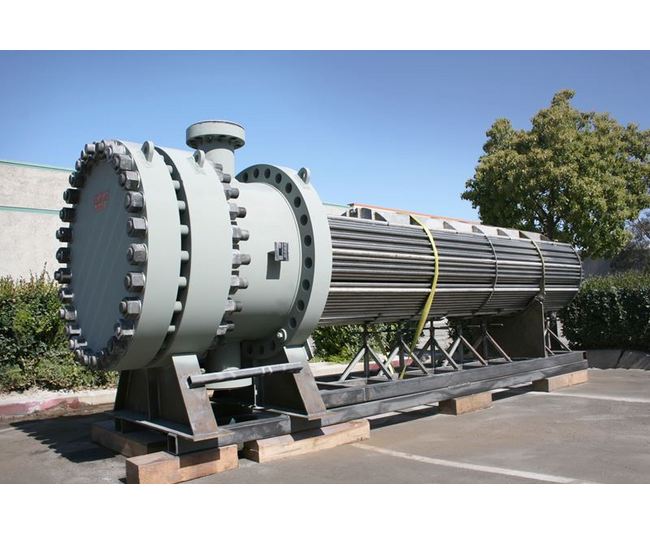In the ever-evolving landscape of industrial processes and thermal management systems, one size rarely fits all. Each application presents its own unique set of challenges, requiring innovative and tailored solutions to ensure optimal performance and efficiency. Enter the realm of custom heat exchangers, where engineering ingenuity meets precision design to tackle even the most complex thermal requirements. This article delves into the world of custom heat exchangers, exploring their importance, design considerations, and the numerous advantages they offer across diverse industries.
The Need for Customization:
Thermal management challenges can arise from a multitude of factors, including unique process parameters, space constraints, extreme operating conditions, or specialized fluid handling requirements. Off-the-shelf heat exchanger designs may not always meet these specific demands, necessitating customized solutions to ensure seamless integration and optimal heat transfer performance.
Custom heat exchangers are meticulously engineered to address these unique challenges, taking into account factors such as fluid properties, temperature ranges, pressure requirements, and physical constraints. By tailoring the design to the specific application, these bespoke solutions maximize efficiency, reliability, and overall system performance.
Design Considerations:
Developing a custom heat exchanger involves a comprehensive design process that considers a wide range of factors. Experienced engineers carefully analyze the thermal load, fluid characteristics, and operating conditions to determine the most suitable heat transfer mechanism and materials.
The selection of materials is a critical aspect, as it directly impacts the heat exchanger’s durability, corrosion resistance, and compatibility with the working fluids. Specialized alloys or coatings may be employed to withstand harsh environments or handle aggressive chemicals, ensuring long-term performance and reliability.
Furthermore, the geometric configuration of the heat exchanger plays a crucial role in optimizing heat transfer rates and minimizing pressure drops. Innovative designs, such as specialized fin patterns, intricate flow channels, or advanced tube arrangements, can be employed to maximize the surface area for heat transfer while maintaining compact and space-efficient dimensions.
Unparalleled Efficiency and Performance:
One of the primary advantages of custom heat exchangers is their unparalleled efficiency and performance. By tailoring the design to the specific application requirements, these devices can achieve optimal heat transfer rates, minimizing energy losses and maximizing overall system efficiency.
Custom heat exchangers can be engineered to handle a wide range of temperature differentials, flow rates, and pressure requirements, ensuring reliable operation under even the most demanding conditions. This level of performance optimization translates into reduced energy consumption, lower operating costs, and improved environmental sustainability.
Compact and Space-Saving Designs:
In many industrial settings, space is a premium commodity, and custom heat exchangers offer a solution to space constraints. By leveraging advanced design techniques and materials, engineers can create compact and space-saving configurations that maximize heat transfer surface area while minimizing the overall footprint.
These compact designs not only facilitate easier installation and integration into existing facilities but also contribute to cost savings by reducing the need for extensive structural modifications or expansions. Additionally, the lightweight nature of some custom heat exchanger designs can further enhance portability and ease of transportation.
Diverse Applications:
The versatility of custom heat exchangers extends far beyond their tailored designs. These devices find applications in a wide range of industries, each with its unique set of requirements and challenges.
In the chemical and petrochemical sectors, custom heat exchangers facilitate efficient heat transfer during complex distillation, separation, and reaction processes, handling corrosive and hazardous materials with precision. The power generation industry relies on these bespoke solutions for reliable cooling and heat recovery in turbines, boilers, and condensers, ensuring optimal efficiency and operational reliability.
Furthermore, custom heat exchangers play a vital role in emerging technologies, such as hydrogen production, carbon capture and storage, and renewable energy systems, where specialized thermal management solutions are essential for efficient and sustainable operations.
Maintenance and Lifecycle Considerations:
When designing custom heat exchangers, engineers take a holistic approach that considers not only the initial performance but also the long-term maintenance and lifecycle costs. Easy access for inspection, cleaning, and repair is incorporated into the design, minimizing downtime and extending the operational lifespan of the equipment.
Additionally, custom heat exchangers can be engineered for easy component replacement or modular upgrades, allowing for adaptability to evolving process requirements or technology advancements. This forward-thinking approach ensures that the investment in custom heat exchangers provides long-term value and flexibility.
Conclusion:
In the dynamic world of industrial processes and thermal management, custom heat exchangers stand as beacons of innovation and tailored engineering solutions. By addressing unique challenges and application-specific requirements, these bespoke devices offer unparalleled efficiency, performance, and adaptability. As industries continue to prioritize energy efficiency, sustainability, and optimized operations, the demand for custom heat exchangers is poised to grow. Their ability to handle diverse thermal loads, accommodate space constraints, and withstand extreme operating conditions makes them invaluable assets across various sectors. Whether in chemical processing plants, power generation facilities, emerging technologies, or specialized industrial applications, custom heat exchangers represent the pinnacle of engineering excellence, combining cutting-edge design principles with robust construction to deliver reliable and cost-effective thermal management solutions. As the world continues its pursuit of sustainable and efficient thermal management strategies, custom heat exchangers will undoubtedly play a pivotal role in shaping a more energy-conscious and environmentally responsible future for industries worldwide.



